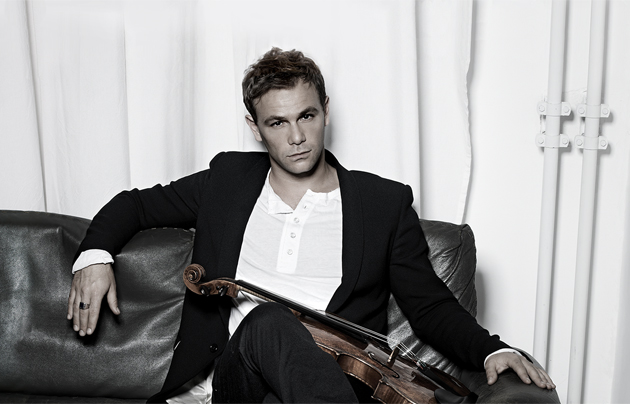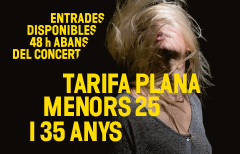Repertoire
Lili Boulanger: D’un matin de printemps (Of a spring morning) (1917-1918) 5′
Béla Bartók: Concerto for Viola and Orchestra, Sz. 120 (1945) 23′
Albert Roussel: Bacchus et Ariane, suite No. 2, Op. 43 (1930) 23′
Maurice Ravel: Daphnis et Chloé, suite No. 2 (1909-1912) 17′
Artists
Barcelona Symphony Orchestra (OBC)
Amihai Grosz, viola
Ludovic Morlot, conductor
Program
The classical world is an inexhaustible source for the great truths underlying the human condition, and love is one of the most common subjects. In the mythological universe of ancient Greece, the myth of Dionysus and Ariadne tells of the abandonment of Ariadne by Theseus in the labyrinth of the Minotaur on the island of Naxos, and the way the god Dionysus (Bacchus in the Roman version) captures and marries her, accompanied by his entourage of satyrs. Using this story, Albert Roussel composed the ballet Bacchus et Ariane (Bacchus and Ariadne), one of the most amazing works of French orchestral music of the 1930s.
PROGRAMDaphnis and Chloe, written in the late 2nd century CE, is the only work by the Greek novelist Longus and is considered the first bucolic novel. In an idealised portrait of peasant life, two young shepherds from Lesbos satisfy their passionate love. Musically revisited on numerous occasions since the 18th century, the most masterful embodiment of this romance is the “choreographic symphony” by Maurice Ravel, entitled Daphnis et Chloé, written for Sergei Diaghilev and the Russian Ballets.
Lili Boulanger, younger sister of Nadia Boulanger and first woman to receive the Prix de Rome, composed D’un matin de printemps (Of a spring morning) shortly before her untimely death at the young age of twenty-four. It is a short symphonic poem with an impressionist influence, steeped in joy, serenity and luminous vivacity.


